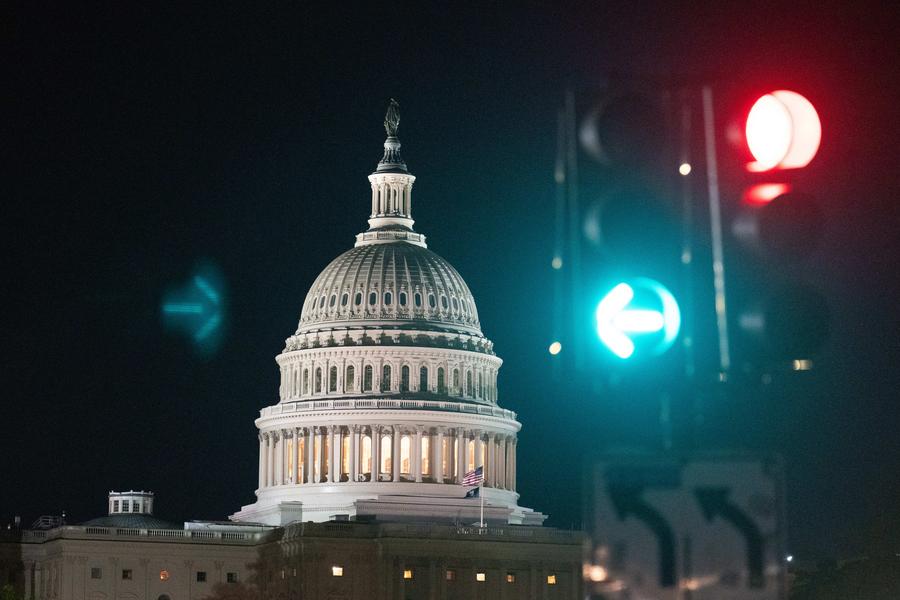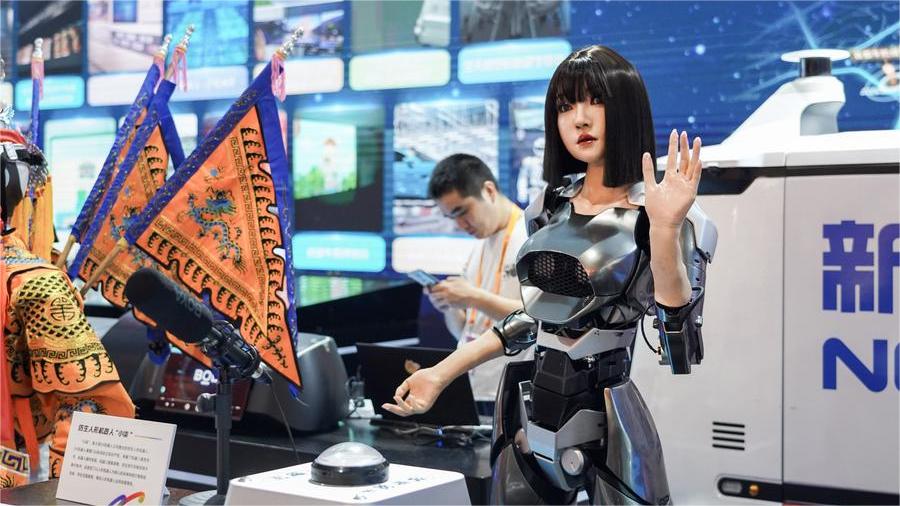Commentary: "Anti-China Week" exposes U.S. weakness in addressing its own issues

This photo taken on April 23, 2024 shows the U.S. Capitol building in Washington, D.C., the United States. (Xinhua/Liu Jie)
Washington's China policy, guided by a self-contradicting doctrine and an outdated superpower ego, is running fast in the wrong direction.
BEIJING, Sept. 17 (Xinhua) -- In many parts of the world, "China Week" is often referred to as events of cultural exchanges. But a twist in tone is observed in America as the term was borrowed by U.S. media to describe a week-long legislative hysteria against China staged by politicians on the Capitol Hill.
Last week saw the Republic-controlled House of Representatives introduce more than 20 bills directly or indirectly targeting China, showcasing an increasingly toxic obsession with "appearing tough on China" in American politicians.
Washington is splitting its personality: one group of politicians talking about avoiding a new Cold War and urging China not to misunderstand Washington's China policy, while another group churning out anti-China legislation. Such hypocrisy begs the question: how can Washington expect to stabilize relations when its legislative body fixates on dismantling ties?
The U.S. media have pointed out that the legislative blitz is less about strategic foresight, but more about pre-election posturing. With the 2024 elections on the horizon, Washington lawmakers are scrambling to compete for the limelight and demonstrate their hardline stance on China, as if being "tough on China" is a panacea to win votes.
Notably, one proposal targets Confucius Institutes, even though they have almost disappeared from U.S. campuses. Another aims to revive the controversial Trump-era China Initiative, a program denounced as a "witch hunt" against Asian scholars.
People have noticed many of the bills introduced last week stand little chance of passing. The White House has already signaled opposition to reviving the China Initiative, and with Congress running out of time before the session ends, most of these proposals will fade into oblivion.
But for those U.S. politicians, the mere act of introducing anti-China legislation is a victory in itself, a way to show that they are "doing something" about China, even if that "something" amounts to little more than inflammatory and toxic rhetoric.
In their two-step strategy of showing "responsible leadership" and winning elections, the first is to confuse the public that China is a major threat to America, and the second pitch is to blame all problems plaguing the country on Beijing. This "perception war" has become a tool for U.S. politicians to rally support, playing nationalist sentiments and exploiting public fear.
This calculated fearmongering has become especially pronounced during election years. By taking others as a scapegoat, U.S. politicians deflect public frustration away from pressing domestic issues like rising income inequality and crumbling infrastructure.
After all, pointing fingers at a foreign country for "stealing" American jobs or engaging in unfair trade is politically expedient and far easier than making the hard choices needed to address U.S. systemic challenges.
However, their fixation on confronting China is not only counterproductive but also a disservice to the American people and will come back to haunt Washington's leaders when it comes to serious policymaking.
In this era of globalization, China and the United States are deeply intertwined, particularly in economic and trade sectors, but badmouthing China won't help to solve U.S. problems. On the contrary, decoupling will cripple industries, drive up prices for American consumers, and weaken the United States' competitive edge in innovation. Semiconductor shortages, disrupted supply chains, and inflationary pressures are just a glimpse of what decoupling would bring. Moreover, isolating the U.S. market from China's electric vehicles won't help with the green transition in America.
Washington's China policy, guided by a self-contradicting doctrine and an outdated superpower ego, is running fast in the wrong direction. It reflects a profound misunderstanding of the interconnected nature of the most important bilateral ties in the world, and could ultimately miss a golden opportunity for cooperation that benefits both nations and the globe at large.
Photos
Related Stories
- Commentary: Short-sighted U.S. tech blockade will not stop China's innovation
- Reinvestigation: Obsessed with blaming China narrative, U.S. to blame for global economic woes
- New data show U.S. adult obesity prevalence remains high
- Tribute in Light seen to mark 23rd anniversary of 9/11 attacks in New York
- Commentary: Washington's bet on "Tibet card" destined to fail
Copyright © 2024 People's Daily Online. All Rights Reserved.









